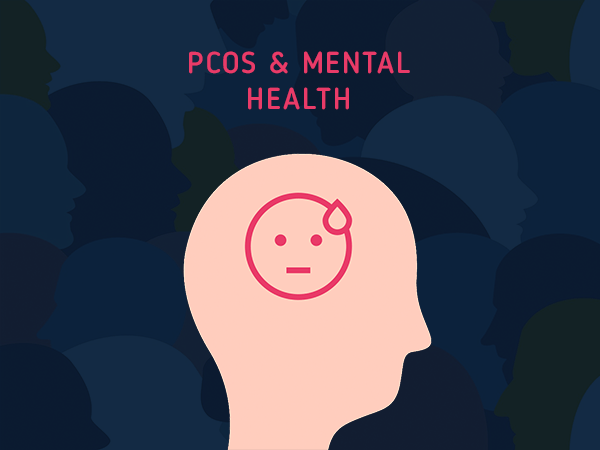Can I claim to understand all the effects of PCOS?
Despite having PCOS myself, I wouldn’t be able to say that. Polycystic Ovary Syndrome (PCOS) is a hormonal disorder, increasingly found common in women of reproductive age. The exact cause of PCOS is unknown and while several factors are identified as possible causes, the reasons vary for different individuals, and as a consequence, so do many of its effects. What I have understood though, through firsthand experience, and through the stories of friends and family, is that the massive effect of PCOS on Mental Health remains quite unseen.
PCOS is a hormonal disorder, bringing with it fluctuating hormone levels, irregular periods and often, physical pain. PCOS also manifests externally, it may lead to additional weight gain, hair loss, acne and growth of facial hair. For several women, PCOS also leads to fertility problems.
From the initiation of internal body changes, to the initial diagnosis of PCOS and later treatment and care, PCOS is a long term issue that brings with it continuous stress and related problems. Approximately 34% of women with PCOS have depression compared to 7% of women in the general population and around 45% have anxiety, compared to only 18% of the general population.
It has also been shown that the longer it takes to receive a diagnosis of PCOS, the more likely women are to be depressed or anxious.
While physical pain and irregular periods can have a direct impact on increasing feelings of stress and discomfort; internal hormonal imbalances bring in mood changes and are the cause of alterations in external features as well, especially an increase in the production of testosterone. It may make one more moody, irritable or withdrawn. Alterations in physical appearance can lead to anxiety, depression or social isolation. Increased body weight, facial hair, acne or loss of hair can lower one’s self esteem and increase feelings of hostility and lead to withdrawal from society. Lowered fertility adds immensely to the stress of a person and societal norms and pressure increases this burden. PCOS increases the risk of other diseases and the compounded stress I spoke of before can in fact aggravate PCOS further – there seems to be no winning here!
Costs of treatment, support, and medication, is high. PCOS has no definite cure and this in itself is a continuous stress or for those with PCOS. It can impact their daily life and activities they engage in. Despite all of this, mental health concerns of women with PCOS (and there is an increasingly large number of such women!) are ignored or dismissed as ‘standard female irrationality’. There is a continued lack of understanding of actual mental health concerns of women with PCOS and an even further inability to tackle it. Doctors treating PCOS need to bring in holistic care that includes a focus on emotional and mental health beyond just asking their patient to take less stress and to inculcate the practise of working with their patients on mental health concerns, along with their other physical ailments and manifestations of PCOS.
Persons with PCOS need to adopt positive mental healthcare practises which includes a nice heavy dose of self care, exercise and practices towards actively pursuing happiness.
A big old dollop of love for yourself and your body is always the best first step.







,